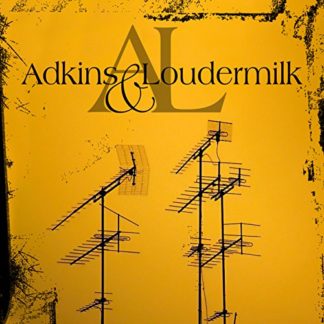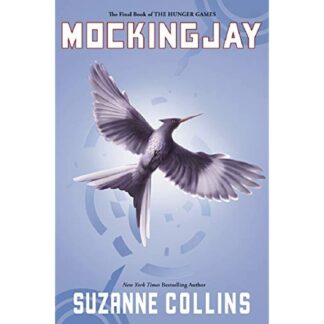Description
Product Description
Against all odds, Katniss Everdeen has survived the Hunger Games twice. But now that she’s made it out of the bloody arena alive, she’s still not safe. The Capitol is angry. The Capitol wants revenge. Who do they think should pay for the unrest? Katniss. And what’s worse, President Snow has made it clear that no one else is safe either. Not Katniss’s family, not her friends, not the people of District 12. Powerful and haunting, this thrilling final installment of Suzanne Collins’s groundbreaking
The Hunger Games trilogy promises to be one of the most talked about books of the year.
Amazon.com Review
Product Description
Against all odds, Katniss Everdeen has survived the Hunger Games twice. But now that she’s made it out of the bloody arena alive, she’s still not safe. The Capitol is angry. The Capitol wants revenge. Who do they think should pay for the unrest? Katniss. And what’s worse, President Snow has made it clear that no one else is safe either. Not Katniss’s family, not her friends, not the people of District 12. Powerful and haunting, this thrilling final installment of Suzanne Collins’s groundbreaking
The Hunger Games trilogy promises to be one of the most talked about books of the year.
A Q&A with Suzanne Collins, Author of Mockingjay (The Final Book of The Hunger Games)
Q: You have said from the start that The Hunger Games story was intended as a trilogy. Did it actually end the way you planned it from the beginning?
A: Very much so. While I didn’t know every detail, of course, the arc of the story from gladiator game, to revolution, to war, to the eventual outcome remained constant throughout the writing process.
Q: We understand you worked on the initial screenplay for a film to be based on
The Hunger Games. What is the biggest difference between writing a novel and writing a screenplay?
A: There were several significant differences. Time, for starters. When you’re adapting a novel into a two-hour movie you can’t take everything with you. The story has to be condensed to fit the new form. Then there’s the question of how best to take a book told in the first person and present tense and transform it into a satisfying dramatic experience. In the novel, you never leave Katniss for a second and are privy to all of her thoughts so you need a way to dramatize her inner world and to make it possible for other characters to exist outside of her company. Finally, there’s the challenge of how to present the violence while still maintaining a PG-13 rating so that your core audience can view it. A lot of things are acceptable on a page that wouldn’t be on a screen. But how certain moments are depicted will ultimately be in the director’s hands.
Q: Are you able to consider future projects while working on
The Hunger Games, or are you immersed in the world you are currently creating so fully that it is too difficult to think about new ideas?
A: I have a few seeds of ideas floating around in my head but–given that much of my focus is still on
The Hunger Games–it will probably be awhile before one fully emerges and I can begin to develop it.
Q: The Hunger Games is an annual televised event in which one boy and one girl from each of the twelve districts is forced to participate in a fight-to-the-death on live TV. What do you think the appeal of reality television is–to both kids and adults?
A: Well, they’re often set up as games and, like sporting events, there’s an interest in seeing who wins. The contestants are usually unknown, which makes them relatable. Sometimes they have very talented people performing. Then there’s the voyeuristic thrill—watching people being humiliated, or brought to tears, or suffering physically–which I find very disturbing. There’s also the potential for desensitizing the audience, so that when they see real tragedy playing out on, say, the news, it doesn’t have the impact it should.
Q: If you were forced to compete in the Hunger Games, what do
FEATURES
- Scholastic Press

![Mockingjay (The Hunger Games) [Hardcover] Suzanne Collins](https://musicelle.com/wp-content/uploads/2022/10/413KDccNayL._AC_US1500_.jpg)
![Mockingjay (The Hunger Games) [Hardcover] Suzanne Collins - Image 2](https://musicelle.com/wp-content/uploads/2022/10/51u-dwCFhyL._AC_US1500_.jpg)
![Mockingjay (The Hunger Games) [Hardcover] Suzanne Collins - Image 3](https://musicelle.com/wp-content/uploads/2022/10/218eZnwqIwL._AC_US1500_.jpg)
![Mockingjay (The Hunger Games) [Hardcover] Suzanne Collins - Image 4](https://musicelle.com/wp-content/uploads/2022/10/41Onyrdj8UL._AC_US1500_.jpg)
![Mockingjay (The Hunger Games) [Hardcover] Suzanne Collins - Image 5](https://musicelle.com/wp-content/uploads/2022/10/41JcNdUTPlL._AC_US1500_.jpg)
![Mockingjay (The Hunger Games) [Hardcover] Suzanne Collins - Image 6](https://musicelle.com/wp-content/uploads/2022/10/31nAUr52bUL._AC_US1500_.jpg)




Reviews
There are no reviews yet.